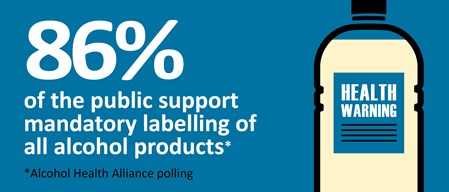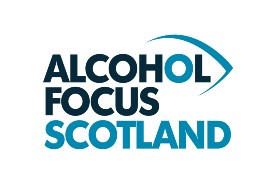News
- Alcohol Emergency continues as latest ONS Deaths Data Published
- AFS Welcomes Parliamentary Vote to Increase MUP
- AFS welcomes HSCSC vote in favour of increasing MUP
- New PHS Dashboard reveals true scale of alcohol harm
- Response to questions regarding AFS funding
- Alcohol related hospital admissions down but alcohol harm still too high
- Stand Firm and Save Lives
- AFS welcome Scottish Government plans to increase MUP
- Levy on supermarkets could raise £57 million a year
- Support for a Public Health Levy on alcohol sales
- First Minister commits to reduce childrens exposure to alcohol marketing
- Survey shows post-pandemic increase in drinking for some
- Scottish Government commit to further plans to restrict alcohol marketing
- Challenge and Change: Rod Anderson
- Parliament must come together to renew and reinvigorate MUP
- A responsible drinking campaign that features cocktail recipes
- Unacceptable rise in alcohol-specific deaths
- Health experts share concerns about complaint made on MUP evaluation
- Decline in alcohol treatment in Scotland
- Challenge and Change: Lived Experience Voices on Alcohol Marketing
- Blog post for Alcohol Awareness Week 2023
- Final verdict on MUP
- Alcohol and diabetes
- Doctors say lack of response on alcohol deaths could spell disaster for Scotland
- MUP reduces deaths and hospital admissions
- Alcohol hospital admissions continue to be too high
- Lessons learned from countries with marketing restrictions
- What is the effect of alcohol marketing on people with or at risk of an alcohol problem?
- ONS figures show highest alcohol deaths on record
- MUP and alcohol sales
- Scottish Government launches alcohol marketing consultation
- MUP and alcohol products and prices
- New licensing policy review guide
- Health campaigners call on Scottish Government to regulate alcohol packaging
- Scottish charity calls for ban on all alcohol promotion
- New NCD Prevention Report - Mapping Future Harm
- Online Alcohol Sales & Deliveries: A survey of young people in Scotland
- Four years of MUP
- Prominent health warnings make drinking unappealing
- Insights from People in Recovery
- Report on alcohol sales and harm in Scotland during the COVID-19 pandemic
- Sugar content in wine revealed
- Alcohol hospital admissions lower during pandemic
- Study reveals those already at risk from heavy drinking bought more alcohol during lockdowns
- Alcohol policy measures could reduce ambulance callouts
- Widespread support for calls to increase minimum unit price for alcohol to 65p
- Three quarters of Scots back new controls to help protect children from alcohol advertising
- More accurate estimates for the burden of Alcohol on the Ambulance Service: around 1 in 6 callouts in Scotland are alcohol related
- How can alcohol labels be improved to help people make informed consumption choices
- Health experts call for better alcohol labelling
- Young people and their views on alcohol marketing
- Lowest alcohol sales in Scotland for 26 years
- Minimum unit pricing has lasting impact study shows
- Euros renews call for action to protect children from alcohol sports sponsorship
- Current alcohol labelling of little relevance to young adult drinkers
- Governments should step up efforts to tackle harmful alcohol consumption
- Scottish public and leading health experts back changes to alcohol labelling
- AFS calls for 65p minimum unit price for alcohol
- How will the main parties prevent harm from alcohol?
- Alcohol labelling reform is way past its sell by date
- Alcohol policy priorities for the next parliament
- Young drinkers believe prominent health warnings on alcohol could boost risk awareness
- Alcohol sales and consumption in Scotland during the pandemic
- How can we prevent alcohol deaths?
- Alcohol Deaths and Minimum Unit Pricing
- YoungScot Health Panel report on alcohol marketing and harm
- Young Scots show support for restrictions on alcohol marketing
- Better alcohol labelling - A way to boost awareness of the risk between alcohol and cancer?
- Alcohol Deaths Prevention Support
- Almost half of Scots in favour of minimum unit pricing
- Health experts campaign for better understanding of Fetal Alcohol Spectrum Disorder
- Health experts call for alcohol labelling overhaul
- Australian ministers agree to visible pregnancy warning
- Alcohol Focus Scotland welcomes new WHO report on alcohol pricing
- Survey shows Scots lockdown drinking rise caused by stress
- Statistical analysis of off-trade alcohol sales in the year following MUP
- Alcohol Focus Scotland Review of statements of licensing policy 2018 to 2023
- We need to continue long-term focus on alcohol
- Scots report changing drinking patterns during coronavirus lockdown
- Time to Blow the Whistle on Alcohol Sport Sponsorship
- New evidence demonstrates that alcohol ads lead to youth drinking
- Alcohol sales fall in first year of MUP
- First study published into under 18 drinkers post MUP
- Two years on Are annual functions reports reaching their potential?
- Scottish primary children call for action on alcohol
- Its time to tell us whats in our drinks
- A home for Rory
- Alcohol sales and MUP
- Lowest alcohol sales in 25 years
- The Children's Parliament investigates an alcohol-free childhood
- Minimum unit pricing one year on
- More about sales data
- A family of resources it is all about prevention, education and resilience
- AFS publish Review of Licensing Board Annual Functions Reports 2017-2018
- Marketing unmasked dispelling the myths and taking a stand
- No place for alcohol marketing in sport
- Scotland publishes first UK guidelines for diagnosing fetal alcohol spectrum disorder (FASD)
- The Alcohol Framework 2018 Preventing Harm
- Scotlands new drug and alcohol strategy launched
- AFS welcome new alcohol strategy
- Recent reporting on alcohol sales data
- Diageo is failing to provide latest guidelines on their products
- Drinks companies keeping consumers in dark about risky drinking
- Reducing alcohol consumption can address health inequalities
- Global first alcohol policy set to save hundreds of Scots' lives
- AFS welcomes minimum unit pricing for alcohol
- Truer picture of alcohol harm revealed
- Alcohol causes 3,700 deaths in Scotland every year
- Scotland's licensing system needs clearer direction
- Minimum pricing blog
- Minimum pricing gets green light
- Alcohol brands and young people
- Time for honest conversations about alcohol
- Q&A on alcohol marketing
- UK children anxious about parents' drinking
- Alcohol producers failing to inform public
- Concern over alcohol-related deaths
- We need to make it easier for people to drink less
- Worrying rise in alcohol-related deaths
- Minimum pricing will save lives
- Pocket money prices for alcohol continue
- Scotland's alcohol problem laid bare
- One drink a day can increase breast cancer risk
- Poverty linked to increased harm from alcohol
- SWA urged to respect minimum pricing decision
- Alcohol-free childhood is healthiest option
- SWA granted leave to appeal minimum pricing
- SWA will appeal to UK Supreme Court
- Minimum pricing can be implemented in Scotland
- Emergency services face shocking levels of alcohol abuse
- Every child has the right to grow up safe from alcohol harm
- Minimum pricing - European court ruling
Alcohol producers failing to inform public
Alcohol brands are failing to inform the public of the drinking guidelines and the health harms linked with alcohol, according to new research.
The research, outlined in a report from the Alcohol Health Alliance (AHA), looked at the information included on alcohol product labels. It was carried out in May this year, some 15 months after the updated guidelines were launched.
Right to know: Are alcohol labels giving consumers the information they need?
Researchers found that, of the 315 product labels reviewed across 27 locations in the UK, only one informed the public of the up-to-date low-risk drinking guideline of 14 units a week.
Where labels did contain information on the drinking guidelines, these guidelines were either out-of-date, or were the guidelines for the Republic of Ireland instead of the UK.
In addition, researchers found that no labels contained health warnings of the specific illnesses and diseases linked with alcohol.
The drinking guidelines were announced by the UK’s Chief Medical Officers in January 2016. The guidelines are based on the latest evidence linking alcohol to illnesses like cancer and heart disease, and are designed to enable people to make an informed choice about their drinking.
At present, there are few requirements for what should appear on alcohol product labels. Alcohol producers, under a system of self-regulation, decide what to include.
Releasing their research, the AHA said that tougher rules were needed on alcohol labelling, to make sure alcohol producers inform the public of the health harms linked with their products.

Professor Sir Ian Gilmore, chair of the AHA, said:
"There is something seriously wrong with the system when consumers in the UK are more likely to buy a product containing the Irish drinking guidelines rather than the current UK ones.
"Self-regulation has failed. Instead of alcohol producers deciding what to include on labels, the government should now require all labels to contain the latest guidelines and information on the health conditions linked with alcohol.
"Alcohol is linked with over 200 diseases and injury conditions, including cancer, heart disease and liver disease, yet awareness of these links is currently very low. We know, for example, that only 1 in 10 people are aware of the link between alcohol and cancer.
"The public have the right to know about the health impacts of alcohol, so that they are empowered to make informed choices about their drinking."
Alison Douglas, Chief Executive of Alcohol Focus Scotland said:
"This report clearly shows that relying on alcohol producers to communicate health information isn’t working.
"Consumers have the right to know what they’re drinking and the risks associated with alcohol consumption. Regularly drinking above the low-risk guidelines of 14 units per week increases the risk of cancer, stroke, liver disease and mental health problems.
"Manufacturers should be compelled to display prominent health warnings, along with information on ingredients, nutrition and calories on alcohol labels."
